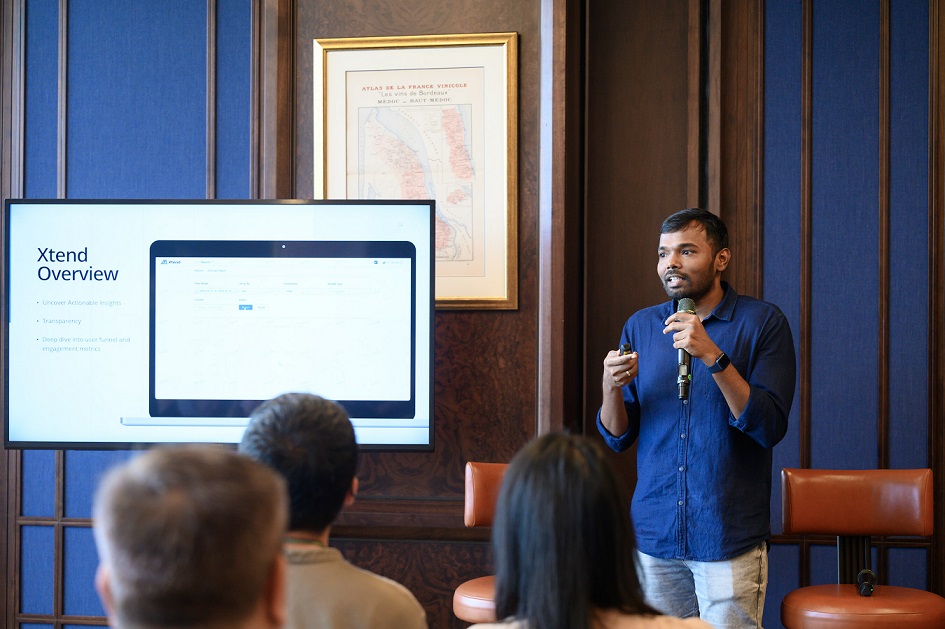By Radhika Wijesekera –
AI continues to make great strides in mobile advertising, making it an indispensable tool that enables advertisers to create more relevant, targeted, and compelling ads for their audiences. In fact, AI can and is used to fine-tune the ways in which advertisements are published in a variety of ways, including ad design, placement, and targeting.
Speaking to AsiaBizToday on his take on AI and the digital advertising world, Muralidharan, the chief commercial officer at Xtend, a Singaporean digital advertising company, said AI can be harnessed to generate and optimise ad creatives based on the target audience’s preferences, behaviour, and even their emotions. It can also be used to experiment with different versions of ad copies, images, colours, and layouts before deciding on the ones that perform the best. In addition, AI can be used to determine the best placement and frequency of ads on websites based on the content of the website itself.
Delving into the future of digital advertising, Muralidharan says that the increase in adopting AI and machine learning to create personalised, relevant, and engaging consumer ads will help advertisers to optimise their campaigns, measure the performance of the ads, and analyse the data, which will give further insights into how successfully the ads have performed. The growing popularity of social media and influencer marketing in reaching both existing and potential customers is noteworthy, as social media ads actually make use of user-generated content and social proof that enhances their appeal and credibility far more than what advertising agencies can do.
AR and VR, voice search, and interactive videos have proven their mettle in creating immersive and memorable experiences for viewers, and these cutting-edge technologies can showcase products and services in a more realistic, creative, and appealing way.
With the use of chatbots, voice assistants, and sentiment analysis, AI can help e-commerce businesses improve customer service and outreach. Over time, Xtend has partnered with more than 50 major e-commerce companies in this way, helping them grow their first-time buyers, activate buyers who have become dormant, and prompt users to strategically navigate towards merchant landing pages.
In other growing industries, such as travel, specialised apps understand the unique needs and preferences of different segments of travellers, thus catering to the distinct needs of each. This includes, but is not limited to, offering targeted promotions during off-season periods, which may ensure a steady stream of business throughout the year.
Speaking on the mobile advertising trends that took centre stage in 2023, Muralidharan stated that social media platforms such as TikTok led the way with their short-form video advertising, while mobile gaming and in-app ads saw striking growth last year. The integration of shopping features within social media apps has been a game-changer too. However, this gave rise to certain privacy issues, which raised the level of complexities in measurement and attribution, which require advertisers to understand and address these trends in order to devise customised strategies that also ensure the safety of user data.
Meanwhile, in 2024, advertisers anticipate a further shift towards immersive and cohesive ad formats which bring together a variety of ad formats to create a holistic advertising experience. Companies are anticipated to harness data for precise ad targeting that will steer towards a more automated, data-centric, and integrated advertising experience for customers.
One of the most significant benefits of utilising AI is the reduced need for human intervention and manual work, which translates into faster, more accurate results with much less need for manhours and other tangible resources. Reduced wastage and the inefficiencies of human labour further contribute towards a notable saving in costs for advertisers in general.
On the flip side, marketing companies such as Xtend utilise their AI-powered dashboards to offer real-time analytics and reporting capabilities, providing markets with up-to-date information regarding ongoing campaigns and how they are performing in the face of a real-life audience. They are even able to access live data on user engagement, conversion, and other metrics that may be relevant, allowing advertisers to arrive at informed decisions in a timely manner.
Elaborating on the role that companies have in maintaining the privacy of their target audiences, Muralidharan claims that marketers should ensure the ethical usage of data by being transparent and open about how they use AI, clearly highlighting how they use the data that is collected, and allowing consumers to opt out of data collection systems. Furthermore, data that is collected should be anonymised or aggregated in order to prevent the ability to identify individual users, especially by hackers and other malicious parties. Xtend advocates a balance of AI and human surveillance, ensuring the ethical usage of AI and data while upholding privacy regulations to the highest standards where encryption is enforced and other methods of security are used to protect user information.
Finally, when asked if there will ever be a return to traditional methods of advertising in today’s highly digitised world, Muralidharan stated that the old methods of advertising still have their place in the sun, especially locally owned businesses that are trying to reach a specific demographic. But overall, the trend is definitely heading towards more targeted, data-driven advertising that allows for more precise and accurate marketing.

